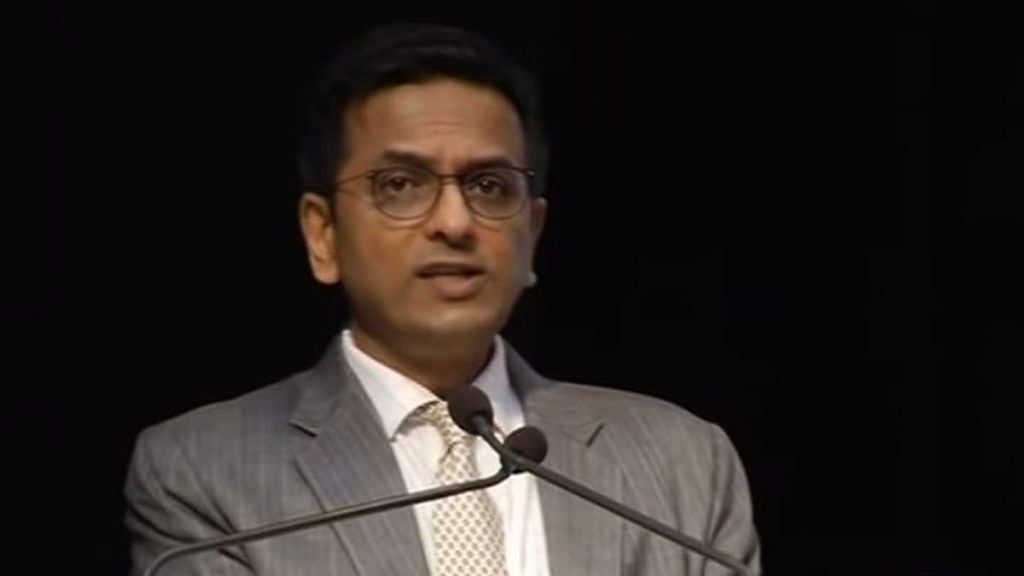Just over a year ago, Indian liberals were swooning over Justice D.Y. Chandrachud, hailing him as one of the few progressive voices left in the Supreme Court. Agog at his passionately-written dissent notes on Aadhaar and the controversial arrest of five activists in the Bhima Koregaon case, the media hailed him as “a judge who is not afraid to dissent”, “the man who doesn’t mince words”, and “judge with a mind of his own.”
Come November 2019, and the same Justice Chandrachud seems to have disappointed his liberal fans for not writing a dissenting judgment in the Ayodhya verdict, which has allowed for the construction of a Ram Temple at the disputed site.
https://twitter.com/luhar1995/status/1193057210235944960
This is ridiculous. Can't believe that, in 2019, Faith/Mythology takes precedence over rationality. Did DY Chandrachud not intervene at all??????
— Bambi (@God_Conundrum) November 9, 2019
But this is not new for Chandrachud, who has swung from one extreme of the ideological spectrum to the other with confounding ease. While he may have been the saviour of India’s democratic values and the spirit of dissent for some, Justice Chandrachud himself has made no bones about not having any ideological loyalty, saying he would “better like to be known as a nationalist judge”.
His job is “not to satisfy the conscience” of either the NGOs or those in power, he had once said.
Yet, he remained the knight in shining armour for the liberals, turning into a progressive “rock star” after his two dissent notes. In his judgment holding Aadhaar as “unconstitutional”, Chandrachud said the biometric system had the “potential for surveillance”.
https://twitter.com/IJaising/status/1044915655819038721
His observation that “dissent is the safety valve of democracy” while hearing a plea against the arrest of five activists became the abiding mantra for liberals to swear by. While the Supreme Court bench had refused to interfere in the matter, Chandrachud had disagreed with the majority view, saying an SIT should be set up to probe their arrest.
In the historic judgment holding privacy as a fundamental right, Justice Chandrachud was one of the five Supreme Court judges to overturn the infamous ADM Jabalpur judgment – authored by his father, late CJI Y.V. Chandrachud, among others – which ruled that the right to life itself could be suspended during an emergency. Justice Chandrachud went on to overrule another judgment by his father which had upheld the controversial adultery law.
Also read: What makes Justice D.Y. Chandrachud the new ‘rock star’ of the Indian judiciary
Inconsistent liberal
But inspiring as some of his judgments may be for liberals, his credentials as a liberal have been somewhat inconsistent, to say the least.
In 2018, Chandrachud, along with former CJI Dipak Misra and Justice A.M. Khanwilkar summarily dismissed a bunch of PILs seeking an independent probe into the death of Brijgopal Harkishan Loya in December 2014, and said that the petitions were an attempt to scandalise and obstruct the course of justice.
He went on to say that PILs are “capable of being and (have) been brazenly misutilised by persons with a personal agenda.”
“At one end of that spectrum are those cases where public interest petitions are motivated by a desire to seek publicity. At the other end of the spectrum are petitions which have been instituted at the behest of business or political rivals to settle scores behind the facade of a public interest litigation,” he had said.
That same year, when CJI Misra was at the receiving end of criticism for assigning important cases to himself, Chandrachud was part of a three-judge bench that ruled it was the “exclusive prerogative” of the CJI to allocate cases and constitute benches.
In the controversial Hadiya case, while Chandrachud’s intervention and line of questioning led to the Supreme Court restoring her marriage to a Muslim man, the court fell short of disallowing the NIA from investigating a terror angle in her marriage.
In 2017, Chandrachud was also part of a three-judge bench that banned liquor vends on highways – a judgment that the Supreme Court had to later significantly dilute.
Now, in the Ayodhya verdict, Chandrachud, who is slated to become the CJI for a term of two years in 2022, chose to tread carefully. He refused to dissent in a judgment that unanimously concludes that the site where the Babri Masjid was constructed was the Janmsthan (birthplace) of Lord Ram.
After this judgment, it is unlikely that liberals would be waiting for Justice Chandrachud’s term as Chief with bated breath like they were just about a year ago.
